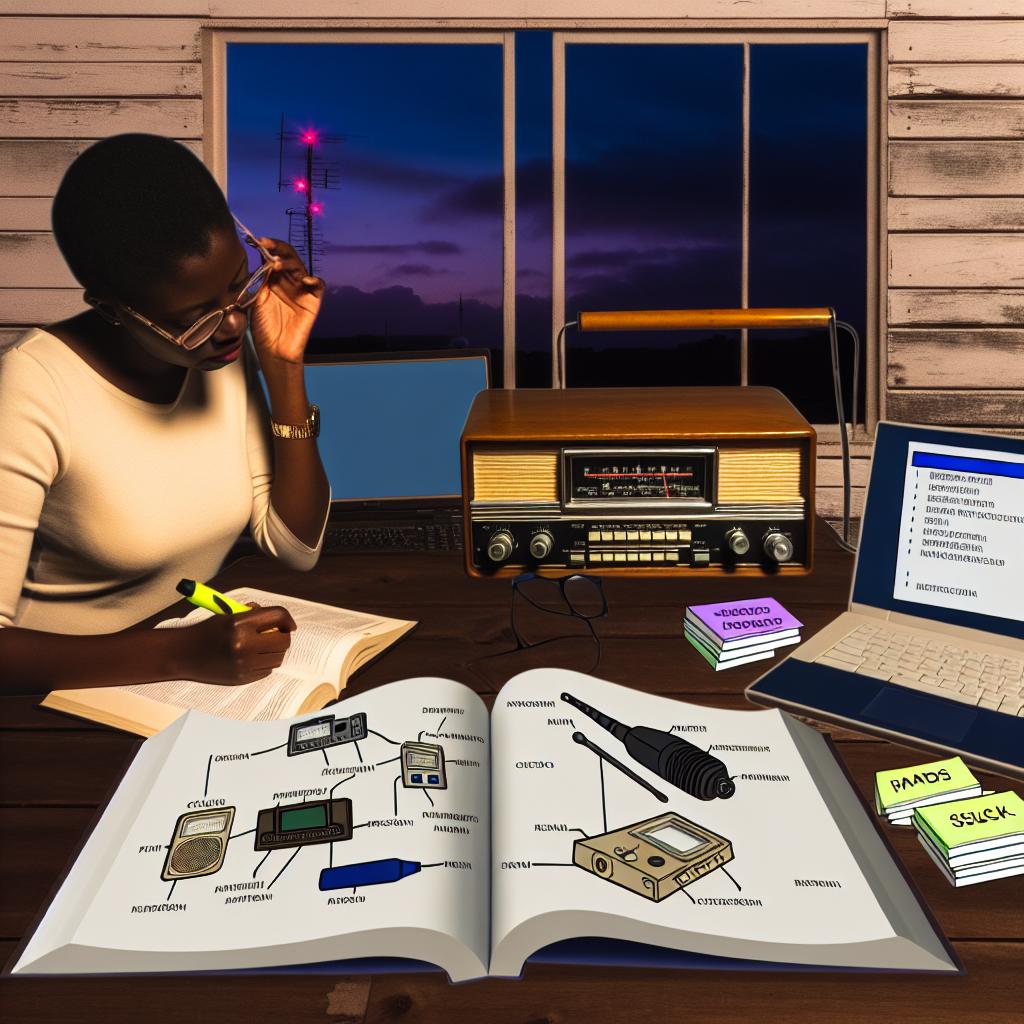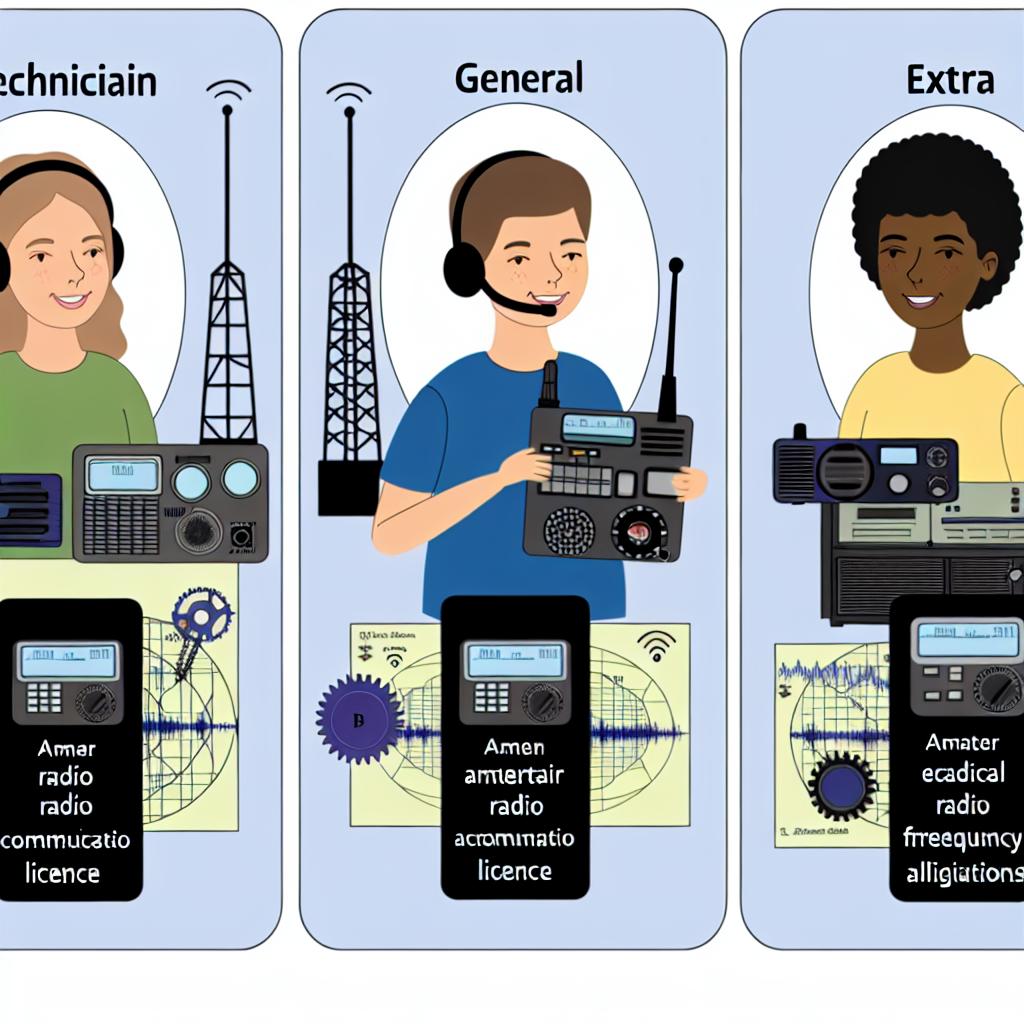Understanding the Amateur Radio License Exam
The Amateur Radio License Exam serves as the primary entry point for individuals interested in the fascinating world of amateur radio. Conducted under the auspices of the Federal Communications Commission (FCC) in the United States, it offers three main classes of licenses: Technician, General, and Amateur Extra. Each license class provides distinct operational privileges, allowing radio enthusiasts to progressively expand their range of communication abilities and knowledge.
Study Materials and Resources
Preparing for the Amateur Radio License Exam requires a strategic approach to gathering study materials and utilizing available resources. The goal is to gain a comprehensive understanding of radio theory, operating procedures, and relevant regulations. Aspiring ham radio operators should consider leveraging an effective study plan. This plan typically includes diverse resources such as books, online courses, and practice exams, specifically tailored for each license class. Reputable websites like QRZ and HamStudy offer helpful practice questions and interactive flashcards that enhance learning and retention.
Choosing the Right Study Method
Selecting the appropriate study method is crucial and should align with your individual learning style. Some individuals prefer the structure and comprehensiveness of traditional reading materials such as textbooks and guidebooks. Others may find that interactive online courses provide a more engaging learning experience, offering quizzes and real-time feedback. A combination approach, utilizing both text-based and multimedia resources, can also be highly effective, catering to different aspects of the learning process and reinforcing understanding through varied means.
The Technician Class License
The Technician Class License is often considered the entry-level license, making it an ideal starting point for beginners in amateur radio. To earn this license, candidates must demonstrate their knowledge of basic radio theory, operating practices, and regulatory requirements. This is achieved by passing a 35-question multiple-choice exam.
Key Areas of Focus
To effectively prepare for the Technician exam, candidates should concentrate on several key subject areas:
1. Basic Electricity and Electronics: A solid understanding of fundamental concepts such as Ohm’s Law, as well as the functionality of basic electronic components like resistors and capacitors, is essential.
2. Operating Procedures: Familiarity with amateur radio operating procedures, including the use of call signs, Q codes, and proper on-air communication protocols, is crucial.
3. Rules and Regulations: Knowledge of the FCC rules and regulations governing amateur radio is necessary to operate legally and responsibly.
General and Amateur Extra License
After obtaining the Technician License, many ham radio operators aspire to upgrade to the General or Amateur Extra licenses. These licenses provide access to a broader range of frequencies and modes of operation, enabling more advanced communication possibilities.
General Class License
To achieve the General License, candidates must pass another 35-question exam. This license class offers enhanced HF (High Frequency) privileges, allowing for long-distance communication. The additional frequency allocations enable operators to engage in global interactions, further broadening their horizons in amateur radio.
Amateur Extra Class License
The Amateur Extra License represents the pinnacle of amateur radio achievement and requires a deep understanding of advanced radio concepts, operating procedures, and regulations. Unlike the previous licenses, this exam is more challenging, consisting of 50 questions. Achieving this level grants operators access to the widest range of frequencies and operating modes, thereby maximizing their potential in the amateur radio spectrum.
Taking the Exam
While the FCC is responsible for the examination content, it does not directly administer the exams. Instead, this responsibility falls to Volunteer Examiner Coordinators (VECs). These coordinators ensure the exam process runs smoothly and in accordance with FCC standards. Prior to sitting for the exam, candidates should thoroughly review the FCC’s official resources and register with an approved VEC group to secure their spot.
Exam Day Tips
When exam day arrives, the importance of preparation extends beyond mere study. Candidates should ensure they have all the necessary identification and materials required for the test. Arriving early can help alleviate any last-minute stress. Maintaining a calm and focused demeanor throughout the exam is crucial. Effective time management, such as allocating sufficient time to read each question thoroughly, can significantly reduce the likelihood of errors.
Post-Exam Process
Upon successfully passing the exam, candidates are awarded their Amateur Radio License. This grants them the legal authority to begin transmitting on designated amateur radio frequencies. However, obtaining the license is just the beginning of a journey that encompasses lifelong learning and skill enhancement. As new licensees, it’s essential to continuously engage with the amateur radio community, participate in discussions, and stay informed about the latest developments and technologies in the field.
For those seeking more information or assistance with the licensing process, the American Radio Relay League (ARRL) licensing page is a valuable resource. Here, candidates can find detailed information on VECs, study aids, and additional educational resources.
In conclusion, successfully passing the Amateur Radio License Exam requires dedication and consistent study. By understanding the fundamentals, familiarizing oneself with operating procedures, and adhering to FCC regulations, aspiring amateur radio enthusiasts can unlock a world of communication possibilities. Welcome to the vibrant and engaging world of amateur radio!



